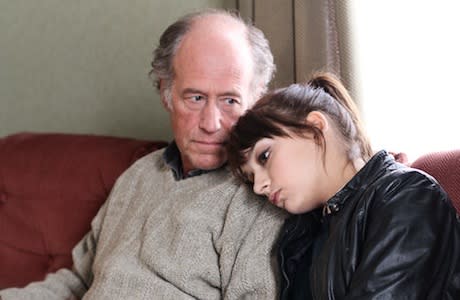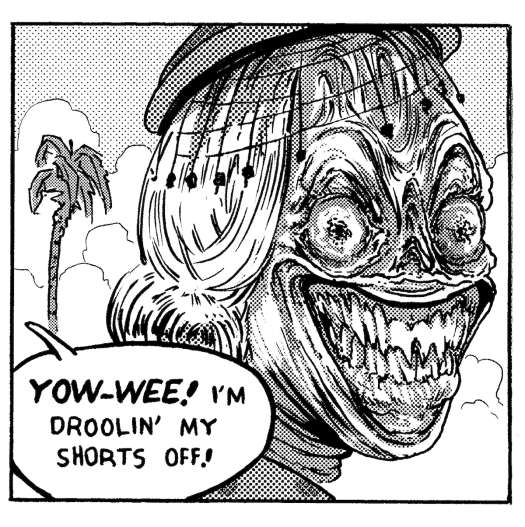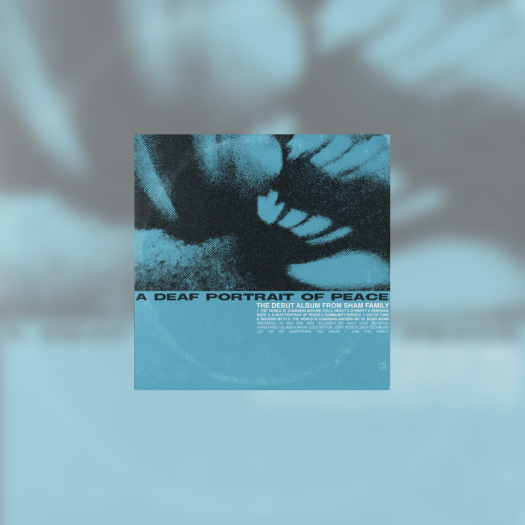Quietly and unassumingly, Le Démantèlement (Sébastien Pilote's modernist ersatz-take on King Lear) unfolds as a contemplative character piece, detailing the quotidian with a keen, observant eye, immersing us in the world of its protagonist. Very little actually happens, at least with any sort of sweeping dramatics, leaving social and economic observations about the death of the rural way of life feeling inevitable, fatalistic and ultimately tragic.
Gaby Gagnon (Gabriel Arcand), a rural Quebec farmer in his mid-60s, spends most of his days caring for his sheep and maintaining his property with a loyal dog and the occasional beer to keep him company. His accountant and friend (Gilles Renaud) stops by on occasion, bringing him a computer early on — a hint at the technological progress and cold interconnectivity of the modern world encroaching upon Gaby's lifestyle — acting as the voice of reason throughout. Otherwise, Gaby spends his time alone, contentedly awaiting infrequent visits from his daughters, Marie (Lucie Laurier) and Frédérique (Sophie Desmarais), both of whom have moved to Montreal with bigger aspirations.
Where Le Démantèlement finds its conflict is in Gaby's false sense of parental loyalty. Early on, Marie shows up at the farm asking her father for a substantive sum of money to pay off debts and sustain her upscale Montreal home now that she's getting a divorce. She cites necessity in maintaining her current lifestyle for her two children, but does so with little compassion, casually pointing out that Gaby should be able to use his farm as collateral for a loan.
Despite warnings from friends and even younger daughter Frédérique, Gaby proceeds to dismantle his farm and life, looking at cheap, imposing apartments in the city. As presented, his world is gradually torn apart — he attempts to get loans, tries selling sheep to low wage, immigrant labourers and searches for a good home for his dog — compounding this is a painful sense of loss that Pilote's thorough investment in, and documentation of, this world makes devastating.
Commoditization as a dehumanizing mode of social and economic sustainment is as much of an antagonist as the sense of entitlement demonstrated by Gaby's daughters. The farm, which he inherited from his father, ultimately has no value beyond the sum of its parts, in a modern context, which, considering that it's a legacy of sacrifice and effort made by generations of family, becomes the tragic observation of our time. Gaby's acquiescence to the demands of a changing world is difficult and heartbreaking to observe.
The minor use of score and intermittent moments of contemplation, lingering amidst the landscape shots following the many difficult decisions our protagonist makes, leave just enough time for us to consider the bigger picture of what we're seeing. There's very little fault in Pilote's intimate handling of the material; he never embellishes or forces the issue, staying restrained enough to let the story and emotional punch speak for themselves.
This slower, observational tactic reiterates the classicist thematic template, utilizing an unembellished cinematic style to document a simpler, sincere way of life, which, ironically, may limit the potential audience.
(eOne)Gaby Gagnon (Gabriel Arcand), a rural Quebec farmer in his mid-60s, spends most of his days caring for his sheep and maintaining his property with a loyal dog and the occasional beer to keep him company. His accountant and friend (Gilles Renaud) stops by on occasion, bringing him a computer early on — a hint at the technological progress and cold interconnectivity of the modern world encroaching upon Gaby's lifestyle — acting as the voice of reason throughout. Otherwise, Gaby spends his time alone, contentedly awaiting infrequent visits from his daughters, Marie (Lucie Laurier) and Frédérique (Sophie Desmarais), both of whom have moved to Montreal with bigger aspirations.
Where Le Démantèlement finds its conflict is in Gaby's false sense of parental loyalty. Early on, Marie shows up at the farm asking her father for a substantive sum of money to pay off debts and sustain her upscale Montreal home now that she's getting a divorce. She cites necessity in maintaining her current lifestyle for her two children, but does so with little compassion, casually pointing out that Gaby should be able to use his farm as collateral for a loan.
Despite warnings from friends and even younger daughter Frédérique, Gaby proceeds to dismantle his farm and life, looking at cheap, imposing apartments in the city. As presented, his world is gradually torn apart — he attempts to get loans, tries selling sheep to low wage, immigrant labourers and searches for a good home for his dog — compounding this is a painful sense of loss that Pilote's thorough investment in, and documentation of, this world makes devastating.
Commoditization as a dehumanizing mode of social and economic sustainment is as much of an antagonist as the sense of entitlement demonstrated by Gaby's daughters. The farm, which he inherited from his father, ultimately has no value beyond the sum of its parts, in a modern context, which, considering that it's a legacy of sacrifice and effort made by generations of family, becomes the tragic observation of our time. Gaby's acquiescence to the demands of a changing world is difficult and heartbreaking to observe.
The minor use of score and intermittent moments of contemplation, lingering amidst the landscape shots following the many difficult decisions our protagonist makes, leave just enough time for us to consider the bigger picture of what we're seeing. There's very little fault in Pilote's intimate handling of the material; he never embellishes or forces the issue, staying restrained enough to let the story and emotional punch speak for themselves.
This slower, observational tactic reiterates the classicist thematic template, utilizing an unembellished cinematic style to document a simpler, sincere way of life, which, ironically, may limit the potential audience.




